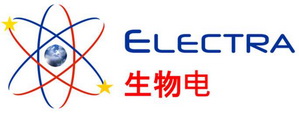
Author Archive
-

Éva Farkas defended her PhD dissertation
Congratulations to Éva Farkas for sucessfully defending her PhD thesis on 15. 01. 2021.
The title of the PhD dissertation is:
“Complex assessment and evaluation of the long-term effects of biochar to improve sandy soils – from laboratory to field application “
The PhD dissertation and the thesis book (both in Hungarian and English) are available in the digital archive of the university.
-

We are pleased to welcome in our group two new PhD students
We are pleased to welcome in our group two additional PhD students, who won a scholarship from the
George A. Olah Doctoral School of Chemistry and Chemical Technology:
Rita Márton (bioengineer M.Sc., BME VBK) and Molnár Szabina (environmental engineer M.Sc., BME VBK).
Rita Márton’s PhD research topic is: studying and influencing quorum sensing in fungi.
Szabina Molnár’s PhD research topic is: the effect of biochar ageing on biochar properties and on its applicability in soil.
We wish much success to their research activity!
-

Zsófia Berkl, our PhD student received the Best Lecture Award at FIBOK2020 on 19th November 2020
We are pleased to inform you that Zsófia Berkl, our PhD student, was awarded the Best Lecture Award (1st Prize) within the MICROBIAL AND BIOMASS BIOTECHNOLOGY section of The 4th National Conference of Young Biotechnologists „FIBOK 2020” for her lecture on the 19th of November 2020:
CYCLODEXTRIN-MEDIATED QUORUM QUENCHING IN ALIIVIBRIO FISCHERI MODEL SYSTEM
Authors: BERKL Zsófia1 – MOLNÁR Mónika 1 – FENYVESI Éva 2 – NÉMETH Imre 1 – BUDA Kata 1 – FEKETE-KERTÉSZ Ildikó 1 – MÁRTON Rita 1 – SZENTE Lajos2
1 BME-VBK ABÉT, Budapest
2 CycloLab Kft., Budapest
Congratulations Zsófi for your continuous success!
-
We were represented by our two PhD students at the 4th National Conference of Young Biotechnologists
The 4th National Conference of Young Biotechnologists „FIBOK 2020” organised by the HUNGARIAN ACADEMY OF SCIENCES and the UNIVERSITY OF DEBRECEN was held online in November, 2020 and it focused on the following areas: PLANT BIOTECHNOLOGY, MEDICAL BIOTECHNOLOGY, MICROBIAL AND BIOMASS BIOTECHNOLOGY, ANIMAL BIOTECHNOLOGY.
The aim of the conference was to provide a forum for young scientists in Hungary involved in biotechnological research and to introduce the results of their research via oral and poster presentations and to support the collaboration between them.
Our research group was represented by two PhD students, Zsófia Berkl and Imre Németh, who presented their work in the MICROBIAL AND BIOMASS BIOTECHNOLOGY section on the 19th of November, 2020.
Zsófia Berkl introduced her work in an oral presentation on the cyclodextrin-mediated quorum quenching in the Aliivibrio fischeri model system. The abstract can be reached on page 63 of the Conference Abstract Book.
Imre Németh introduced the results of his work in a poster presentation on the effects of zinc oxide and titanium dioxide nanoparticles on Pseudomonas aeruginosa and Serratia marcescens biofilm formation. The abstract can be reached on page 81 of the Conference Abstract Book.
-

ELECTRA H2020-NMBP-BIO-CN-2018
 Project title: ELECTRA – Electricity driven Low Energy and Chemical input Technology foR Accelerated bioremediation
Project title: ELECTRA – Electricity driven Low Energy and Chemical input Technology foR Accelerated bioremediationProject website: https://www.electra.site
Topic: CE-BIOTEC-04-2018
Type of action: RIA (research & innovation)
Funding Agency: European Union / European Commission
Project duration: 2019. 01. 01 – 2022. 12. 31
Project type: consortial
Project partners:
ELECTRA is a consortium of European and Chinese partners.
The EC-funded consortium gathers 17 partners from 6 EU countries,1 Associated Country. 1 large Chinese company is part of the EC consortium without claiming any funding from the EC since NSFC finances only fundamental research and does not allow for the inclusion of companies as partners in NSFC projects. This company has a key/essential role in replicating field test experiments from European sites to Chinese sites.
Institution Abbreviation Country 1(Coordinator) FACHHOCHSCHULE NORDWESTSCHWEIZ FHNW CH 2 ALMA MATER STUDIORUM – UNIVERSITA DI BOLOGNA UNIBO IT 3 POLYTECHNEIO KRITIS TUC GR 4 UNIVERSITAT DE GIRONA UdG ES 5 UNIVERSITEIT GENT UGent BE 6 UNIVERSITA DEGLI STUDI DI ROMA LA SAPIENZA UNIRM IT 7 CONSIGLIO NAZIONALE DELLE RICERCHE CNR IT 8 HELMHOLTZ-ZENTRUM FUR UMWELTFORSCHUNG GMBH UFZ DE 9 IEG – TECHNOLOGIE GMBH IEG DE 10 BUDAPESTI MUSZAKI ES GAZDASAGTUDOMANYI EGYETEM BME HU 11 UNIVERSITAET DUISBURG-ESSEN UDE DE 12 METFILTER SOCIEDAD LIMITADA METFI ES 13 AVECOM AVEC BE 14 REGENHU SA REGEN CH 15 POTEN ENVIRONMENTAL GROUP CO., LTD. POTEN CN 16 EIDGENOSSISCHES DEPARTEMENT FUR VERTEIDIGUNG, BEVOLKERUNGSSCHUTZ UND SPORT VBS (DDPS) CH 17 ENI S.p.A. ENI IT 18 Institute of Microbiology, Chinese Academy of Sciences (Beijing) – Chinese Coordinator IMCAS China 19 Research Centre for Ecology and Environmental Sciences, Chinese Academy of Sciences (Beijing) RCEES China 20 Nanjing University (Nanjing) NJU China 21 University of Science and Technology, Chinese Academy of Sciences (Hefei) USTC China 22 Nanjing Agricultural University NJAU China Summary:
The ELECTRA project is a EU-China RTD joint initiative that will deliver 2 innovative sets of novel electromicrobiology based environmental biotechnologies, facilitating/improving electron transfer during microbial degradation processes. Our approach will accelerate the elimination of several classes of pollutants and mixtures thereof in contaminated wastewater, groundwater, sediment and soil.
The first set of biotechnologies employs bioelectrochemical systems requiring low energyinput and no chemical addition.
The second set comprises biotechnologies, which necessitate no energy input and minimal chemical amendment using electromicrobial concepts.
ELECTRA biotechnologies will build on recent groundbreaking advances in biotechnology to develop them for environmental bioremediation applications and test the 4 most advanced technologies during field trials under various environmentally relevant conditions in both Europe (4 sites with contaminated wastewater, groundwater, soil, and sediment) and China (4 sites: mirroring tests concept) to prove their efficiency and robustness.
The ELECTRA project deliberately addresses the accelerated elimination of compounds representative of hydrocarbons and derivatives, emerging pollutants, metals and nutrients and mixtures thereof in environmentally relevant concentration as a wise and careful approach taking into account the real problem of contaminations by organic and inorganic pollutants as well as nutrients.
The ELECTRA project addresses the accelerated elimination of:
- Hydrocarbons (TPHs: polycyclic aromatic hydrocarbons and alkanes) and their halogenated derivatives (e.g.chlorinated aliphatic hydrocarbons (CAHs), polychlorobiphenyls (PCBs, halogenated aromatics);
- Metals (Sb, Pb, As, Hg, Cd, Zn);
- Nutrients (NH4+ and NO3-)
- Emerging micropollutants: antibiotics (e.g. fluoroquinolones and sulphonamides); flame retardants and endocrine disrupting chemicals (e.g. tetrabromobisphenol A and bisphenol A) and pesticides (e.g. bromoxynil and propiconazole).
The environmental impacts and financial costs associated with ELECTRA’s bioremediation technologies will be estimated from a life cycle and risk perspective to support the decision process in future treatment selections.
LCA will be used to evaluate the efficiency of the remediation technologies and to choose the technology Champions to be tested.
A web-based EDSS (Environmental Decision Support System) will be developed to help support relevant decision makers in selecting the most appropriate treatment option for target applications based on technical, environmental and economic criteria.
The main task of the Environmental Microbiology and Biotechnology Research group within BME’s Applied Biotechnology and Food Science Department will be ecotoxicological monitoring of the experiments.
A problem-specific and complex monitoring methodology will be developed and applied by BME to follow changes in the ecotoxicity of contaminated WW, GW, soil and sediment before and after technology applications. The toxicity associated to the contaminated matrixes of the selected sites will be evaluated using a suite of ecotoxicity tests. For each matrix/contaminant, the most suitable ones will be then selected for the evaluation of the toxicity changes at the end of the bioremediation processes. For each matrix, test organisms from at least three trophic levels will be chosen and extrapolation to the complex ecosystem will be carried out.
Acute, chronic toxicity and genotoxic effects will be tested with standardized (based on ISO and OECD standards) or pollutant-specific test methods (e.g. D. magna heartbeat rate test for micropollutants). For the pollutant and matrix specific (WW, GW, soil, sediment) ecotoxicity toolkit BME will select the best combination of the following test organisms: Aliivibrio fischeri (luminescent aquatic bacterium), Bacillus subtilis (soil bacterium), Salmonella typhimurium (in Ames-test), Lemna minor (aquatic plant), Sinapis alba and Triticum aestivum (terrestrial plants), Tetrahymena pyriformis (protozoan), Daphnia magna (water living crustacean), Heterocypris incongruens (sediment living ostracoda), Folsomia candida (soil living insect), Enchytraeus albidus (potworm), etc. Except for aquatic test organisms, most of them can be applied for the testing of both liquid and solid samples.
In case of soils and sediments, both water extracts and whole soil/sediment samples (direct toxicity assessment, DTA) will be tested. DTA draws the attention to the chemically unmeasured or non-measurable, but existing hazardous components.
BME will be involved also in Life Cycle Assessments (LCA) of the different technologies to estimate environmental impacts associated with the application of the technology and in the development of the knowledge base of the multi criteria EDSS.
-

The first ELECTRA newsletter was published
 We are pleased to present the first issue of the ELECTRA project newsletter.
We are pleased to present the first issue of the ELECTRA project newsletter.ELECTRA is a flagship project of the EU-China Cooperation Initiative. It is a 4-year Research and Innovation Action. Our research team from BME is consortium partner of the ELECTRA project . The consortium consists of 16 European partners receiving funding from the European Union H2020 programme, and 5 Chinese partners being funded by the National Natural Science Foundation of China (NSFC).
The project aims to develop and implement bioelectrochemical systems for the bioremediation of contaminated wastewater, groundwater, sediments and soil.
The first newsletter presents the first set of four technologies as well as a brief summary of an impressive number of communication and dissemination activities performed within this first 18 months of the project.
-

We participated with three abstracts at the ERES 2020 Virtual Conference

Between 3-6 October, 2020 we participated at the ERES 2020 Virtual Conference, (http://eres2020.eres-conference.eu/ ) organised by the SCALE and the secREEts projects and sponsored by Mytileneos and MEAB.
This was the 3rd Conference on European Rare Earth Resources originally planned to be held in Delphi, Greece.
However, due to the ongoing COVID19 crisis, the organizing committee of the ERES 2020 conference has decided to move the conference to a virtual venue.
Our group participated with three abstracts, presented in one lecture by Viktoria Feigl.
The below listed abstracts can be viewed also in the list of abstracts: http://eres2020.eres-conference.eu/index.php/abstracts/
Viktória FEIGL, Emese VASZITA, Mónika MOLNÁR, Sebastian HEDWIG, Markus LENZ, Ildikó FEKETE-KERTÉSZ: ECOTOXICITY OF RESIDUES FROM THE LEACHING PROCESS OF BAUXITE RESIDUE FOR SCANDIUM PRODUCTION
Ildikó FEKETE-KERTÉSZ, Emese VASZITA, Mónika MOLNÁR, Sebastian HEDWIG, Markus LENZ, Viktória FEIGL: ECOTOXICITY ASSESSMENT OF NANOFILTRATION PRODUCTS AS THE FIRST STEP OF SCANDIUM PRODUCTION FROM TITANIUM DIOXIDE PRODUCTION WASTE
Emese VASZITA, Ildikó FEKETE-KERTÉSZ, Mónika MOLNÁR, Dirk Hengevoss, Markus LENZ, Viktória FEIGL: QUALITATIVE ASSESSMENT OF THE ECOTOXICOLOGICAL EFFECTS OF RESIDUES GENERATED IN SCANDIUM PRODUCTION TECHNOLOGIES
-

The 8th progress meeting of the SCALE project was held online on the 2nd October 2020
Our group attended online the SCALE 8th progress meeting on the 2nd of October, 2020.
Viktoria Feigl presented the summary of the results on the work conducted by the group within WP5 – Sustainability evaluation.
We reported on the results of ecotoxicity testing of chemicals used and the wastes produced during SCALE processes and on the qualitative assessment of the environmental effects to support Life Cycle Assessment of the SCALE technologies.
-

We attended the 4th ELECTRA online progress meeting on 14-15 September, 2020.
The ELECTRA project 4th progress meeting was held online between 14-15 September 2020.
The work progress per WP was discussed in break-out sessions.
Mónika Molnár and Ildikó Fekete Kertész presented the progress and the results of the ecotoxicity testing of samples supplied by partners from field experiments.
-

We wish you a happy and successful New Year!
The Environmental Microbiology and Biotechnology Group of BME’s Department of Applied Biotechnology and Food Science from Budapest, Hungary, wishes success and happiness in 2020 to all the colleagues, students, partners and collaborators!



